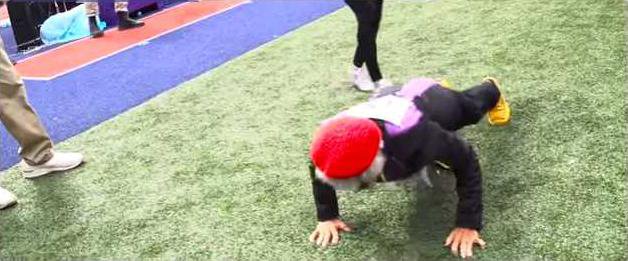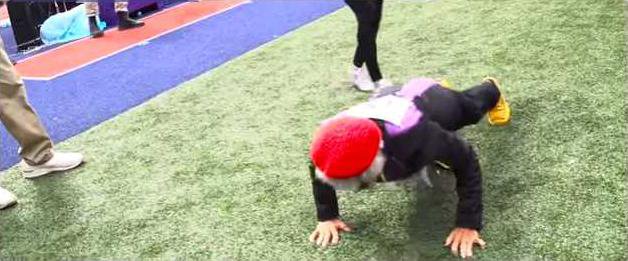Exercise should be a get-to, not a have-to, but sometimes we all need a little kick to get going because of Newton's First Law of Motion: A body at rest will remain at rest unless an outside force acts on it.
There are all sorts of outside forces that can get us going, like a frowning doctor or a laughing scale, but an inspirational video is much more pleasurable. Here are five that will make you want to lace up your shoes and start moving.
She's 101, what's your excuse?
The Penn Relays is the longest-running track event in the U.S., dating to 1895. Ida Keeling isn't that old, but she just turned 101, and she's now the world record holder for the 100-plus age group in the 100-meter distance.
Keeling started running when she turned 67. Here's her record-setting performance at Penn. And the push-ups she did after she finished.
'You are not a marathon runner'
But you may be, after watching Nike's salute to the back of the pack. The song is "Every Little Bit Hurts" by Aretha Franklin. The runner is anybody who's ever been pounding the streets long after the winner has already eaten the bagel, accepted the trophy and showered.
You are also not a horse
But to watch Secretariat win the Belmont Stakes in 1973 is to marvel at God's creation operating in peak form, and to wonder if you, too, shouldn't get off the couch and start working to attain the height of your physical gifts.
The announcer says it was "a record that may stand forever," and 42 years later, it still holds.
But what you do in the dark ...
Under Armour's "Rule Yourself" series movingly reminds us that Patriots superstar Tom Brady was the 199th pick in the sixth round of the 2000 draft, but Michael Phelps gets more time to show how he earned 22 Olympic medals by grunting it out, lap after lap. You won't be the same after watching it, SwimSwam magazine promises.
Makes it count
Casey Neistat's quirky video for Nike had little to do with working out, but everything to do with why people do it. Watch him run around the world in 10 days sustained by street vendors and gnarly airplane food and you'll want to do it, too. Do more, indeed.
There are all sorts of outside forces that can get us going, like a frowning doctor or a laughing scale, but an inspirational video is much more pleasurable. Here are five that will make you want to lace up your shoes and start moving.
She's 101, what's your excuse?
The Penn Relays is the longest-running track event in the U.S., dating to 1895. Ida Keeling isn't that old, but she just turned 101, and she's now the world record holder for the 100-plus age group in the 100-meter distance.
Keeling started running when she turned 67. Here's her record-setting performance at Penn. And the push-ups she did after she finished.
'You are not a marathon runner'
But you may be, after watching Nike's salute to the back of the pack. The song is "Every Little Bit Hurts" by Aretha Franklin. The runner is anybody who's ever been pounding the streets long after the winner has already eaten the bagel, accepted the trophy and showered.
You are also not a horse
But to watch Secretariat win the Belmont Stakes in 1973 is to marvel at God's creation operating in peak form, and to wonder if you, too, shouldn't get off the couch and start working to attain the height of your physical gifts.
The announcer says it was "a record that may stand forever," and 42 years later, it still holds.
But what you do in the dark ...
Under Armour's "Rule Yourself" series movingly reminds us that Patriots superstar Tom Brady was the 199th pick in the sixth round of the 2000 draft, but Michael Phelps gets more time to show how he earned 22 Olympic medals by grunting it out, lap after lap. You won't be the same after watching it, SwimSwam magazine promises.
Makes it count
Casey Neistat's quirky video for Nike had little to do with working out, but everything to do with why people do it. Watch him run around the world in 10 days sustained by street vendors and gnarly airplane food and you'll want to do it, too. Do more, indeed.








